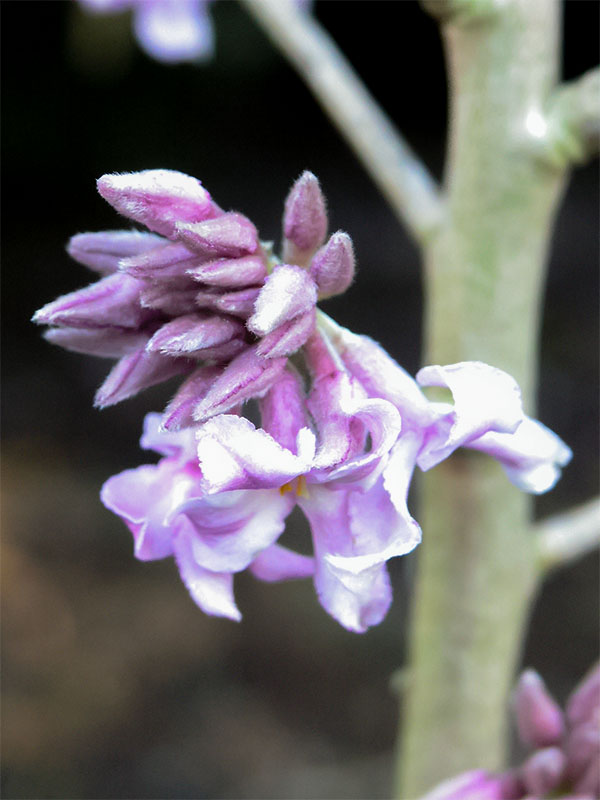| ID Characteristic | Flower buds are borne in clusters on bare branches and are rose pink in colour. |
| Shape | Upright vertical randomly-shaped shrub. |
| Landscape | Can be used in a landscape at the side of a house or possibly against a patio edge. |
| Propagation | Seeds need good loam in order to grow to their full potential. Keep seeds at room temperature for 3 - 4 months. Keep in a cooler temperature around 3° C for the remainder of the year as the seeds germinate. |
| Cultivation | Tolerates full sun to partial shade in well-draining, moderately fertile soils. Keep protected from winds and keep its roots relatively cool and moist. |
| Pests | Aphids. |
| Notable Specimens | Wakehurst Place, Ardingly, West Sussex, England. Birmingham Botanical Gardens, Birmingham, England. |
| Habitat | High altitudes of 1700-3500 m igrassy areas and pastures. |
| Bark/Stem Description | Smooth texture with rough areas. |
| Flower/Leaf Bud Description | Pointed buds are 5 - 8 mm long, borne in clusters and are found along the branches of the plant. |
| Leaf Description | Long parallel shape with a defined crease in the center. They have shiny, glossy coatings, are generally 5 - 10 mm in length and are arranged alternately on the branch. |
| Flower Description | Found in terminal clusters on the branches. They have a strong pleasant fragrance. In the center of the flowers there are yellow-haired tubes 6 - 12 mm in length. Flowers have 4 petals, are pointed at the end and are usually 6 - 8 mm in length. |
| Fruit Description | Black in colour and are completely spherical in shape. They have a diameter of approximately 1 cm. The fruit are very toxic. |
| Colour Description | The flowers are pinkish-purple in colour and the leaves are dark green year-round with a shiny coating. Branch bark is brown in colour. |
| Texture Description | Medium. |
